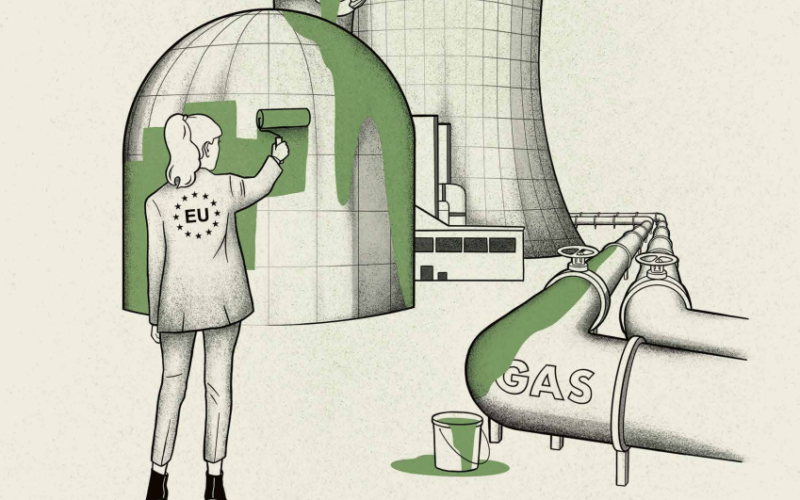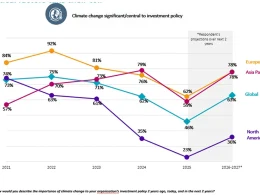A new report from Greenpeace Germany argues that including fossil gas and nuclear power in the EU’s sustainable investments rulebook undermines efforts to tackle the climate crisis. This report coincides with ongoing hearings at the European Court of Justice, where Austria challenges the European Commission’s decision to label gas and nuclear as sustainable within the EU taxonomy, which guides investments toward green projects.
The report highlights that fossil gas is a significant greenhouse gas emitter throughout its lifecycle—extraction, transport, storage, and use—contributing to the acceleration of climate change. Similarly, nuclear power, with its long development timelines of 10 to 19 years in the EU, is considered too slow to address the urgent climate crisis. It diverts crucial investment away from renewable energy solutions that can be rapidly deployed, thus prolonging the lifespan of coal and gas power. Greenpeace also points out the environmental hazards of nuclear energy, such as radioactive waste and the risk of catastrophic failure, which contradict the EU taxonomy’s stated sustainability goals.
“Labelling fossil gas and nuclear as sustainable investments is environmentally, financially, and socially irresponsible,” said Ariadna Rodrigo, Greenpeace EU’s sustainable finance campaigner, adding, “People are suffering daily from extreme floods, droughts, and other devastating impacts of the environmental and climate crisis. Greenwashing these harmful energies hinders and slows down the energy transition, and undermines the EU’s own climate goals. We have no time to waste; governments and investors should prioritise the real solutions like renewable energy and home insulation that can cut pollution—and people’s bills—right now.”
Greenpeace’s report calls for accelerated investment in renewable energy as the fastest and most efficient way to phase out fossil fuels from Europe’s energy mix. It urges EU policymakers to remove gas and nuclear from the sustainable investment label, advocating instead for immediate investment in renewables and energy efficiency initiatives that can rapidly reduce emissions.
Meanwhile, hearings at the European Court of Justice follow Austria’s legal challenge against the EU Commission’s decision to classify gas and nuclear as sustainable. Greenpeace has also filed a lawsuit, which is currently paused, pending the outcome of Austria’s case. Depending on the court’s decision, Greenpeace’s case could resume, focusing on whether Austria’s legal proceedings have fully addressed its concerns.





















